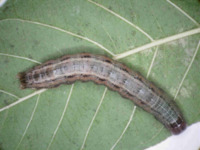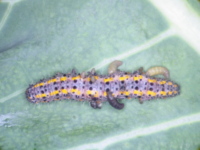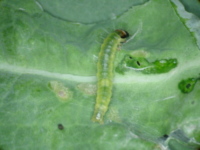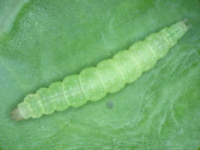Temperature and agricultural pests
Animals such as mammals and birds are able to regulate their body temperature. In humans, the body temperature of a healthy person will be close to 36.5 ºC, regardless of the season. If our body temperature varies much below this value, there is a risk of hypothermia, if it reaches a value above 37.8 ºC, we have a fever. Both conditions can lead to death.
However, not all animals have the ability to regulate their body temperature as mammals and birds. Insects, for example, have a body temperature close to room temperature. For this reason, temperature is very important for the life cycle of these important animals. The higher the temperature, the faster the insect’s metabolism and, consequently, the faster it develops. The faster an insect develops, the faster its population increases. If the insect is an agricultural pest, the greater its population in the field, the greater the damage caused and the yield losses.
Given this close relationship between insect development and temperature, our research group studied how the southern armyworm (Spodoptera eridania), an important pest of several agricultural crops cultivated in Brazil, responds to different temperatures. We observed that at 15ºC the development time for this species was 120 days. When the same species are kept at 32ºC, the development time decreases to just 25 days! In addition, in this study, we used mathematical models to understand the relationship between temperature and the development of the southern armyworm. Together with daily temperature data, these models can be used to predict the occurrence of the southern armyworm in the field, helping the farmers to manage this important pest.
The paper entitled “Temperature-dependent development models describing the effects of temperature on the development of Spodoptera eridania” is part of the master thesis of Fábio Sampaio, and was published in the journal Pest Management Science. We will soon publish a paper on how climate change will affect the southern armyworm in southern Brazil.
Wait for new information!












Comments